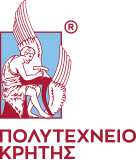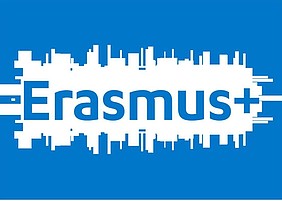Στα πλαίσια της συνεργασίας της Σχολής Μηχανικών Παραγωγής & Διοίκησης με το Πανεπιστήμιο Nisantasi υπό το πρόγραμμα ERASMUS+, τη Δευτέρα 16 Μαϊου στις 18:00 στην αίθουσα μεταπτυχιακών της Σχολής θα πραγματοποιηθούν οι κάτωθι διαλέξεις από καθηγητές του συγκεκριμένου Πανεπιστημίου. Οι ομιλίες είναι ανοικτές στο κοινό.
"Sustainability in Campuses: An Example on Sustainable Campus Buildings in Turkey" by Asst. Prof. Dr. Mert Tolon.
The world human population has increasing dramatically, so the provinces of country as well as all cities and towns have also increase. Therefore, industrial spaces which are located in the city centers have been lost their function due to some social and economic reasons. However, it is known that these buildings has industrial heritage, so it reflects people's life style at that time. Also, in these days, the notion of sustainability has become important in our lives as communities; cities, buildings, production, consumption, transportation, campuses, food, energy and etc. In this respect changing the function of these abandoned buildings gain an importance for conserving cultural values and sustainable development. The objective of these studies is to make contribution to create positive awareness in transformation of post-industrial areas as university campuses. The project is a current example of transformation of industrial storage area into a university campus, which is called Nişantaşı University, in Kağıthane, Istanbul, Turkey. Nişantaşı University is a foundation university which began providing its associate degree programs on 10 October 2010. The factors that affecting the transformation of buildings, such as the location, the floor-plan and the ownership of the property, the features of the building, historical and architectural values of the building, structure and condition of the building. Also, the university is called its building as “an Organic Campus Building”. The presented lecture aims to change the way people look at abandoned industrial site, to help changing the future of urban development and also be a model for similar projects. Therefore, sustainability is a way of thinking rather then not one dimensional subject. It is known that challenging aspects of sustainability are complexity of subjects, uncertainty of problems and deciding the solution techniques, environmental limits and whole life costs. As an example, in some European Universities, the departments consider sustainability concept as a holistic approach. These lectures are aiming to increase the awareness on these issues in terms of a holistic approach.
"Sustainability in Campuses: An Example on Sustainable Campus Buildings in the European Union" by Asst. Prof. Dr. Adlen Altunbas.
Global warming, ozone depletion, natural resource decline, ecosystem destruction, carbon emissions have become the biggest challenge of the 21st century. Therefore, some necessary efforts and radical changes should be done to reduce the causes of these serious global problems. In light of the investigations, it is seen that sustainable development will be the solution of these crucial problems. So, the measures should be taken towards sustainable development by everyone in the community. Sustainability as a term have not certain definition, so many people have been studying to define what sustainability is. Sustainability became widely used term after the The Brundtland Report in 1987. The most cited definition of sustainability after many declarations and worldwide conferences, came into existence in Brundtland Commission. In this report, the Commission defined sustainable development as “...development that meets the needs of the present without compromising the ability of future generations to meet their own needs” which can be called as one of the first definitions in the literature.
It is known that Higher Education Institutions (HEIs) play key role in the development, so in the future of society and they can be seen as models for the society. Thus, Higher Education Institutions (HEIs) is one of the important stakeholders of supporting transition to a sustainable society, because they play a key role in society about developing a point of view and diffusion on innovations. At this point, “Campus Sustainibility” gains importance. However, “Sustainable campus” have also not well defined yet in the world. A sustainable campus could be generalized as a holistic approach such as: campus management (energy consumption, on-site renewable, energy efficiency, waste and recycling, sustainable campus development of housing and buildings, water management, transportation, procurement, landscape, food); research; education and outreach (curriculum, programs, community engagements); development and implementations of sustainable campus policies, strategies and efforts in the campus; social sustainability and economic sustainability. It is tended by this lecture to discuss the efforts of the Campus Sustainability Movement (CSM) in the European Union. Under this title, presented lecture aims to improve the knowledge of the Sustainable Campus Ratings and Networks in the European Union, Energy Outlook, Energy Efficiency Approach and Energy Efficiency in Buildings in the European Union , Sustainable Campus Ratings and Networks in the European Union, Sustainable Campus Examples from the European Union.














